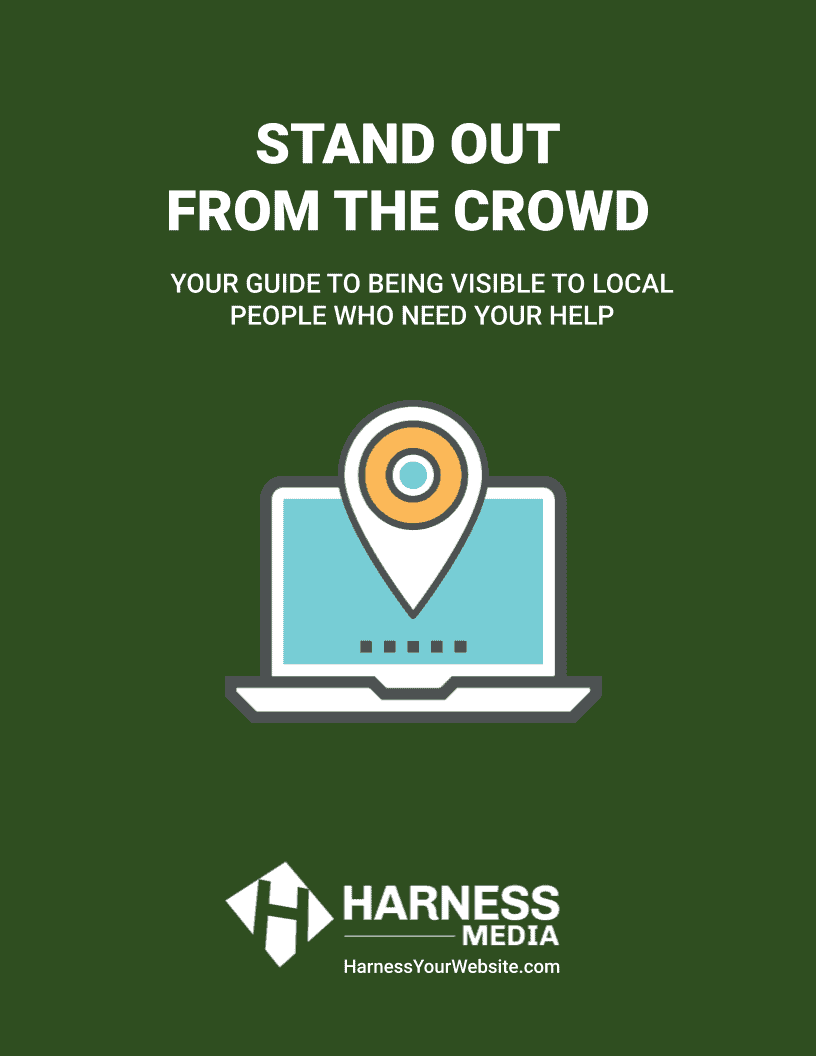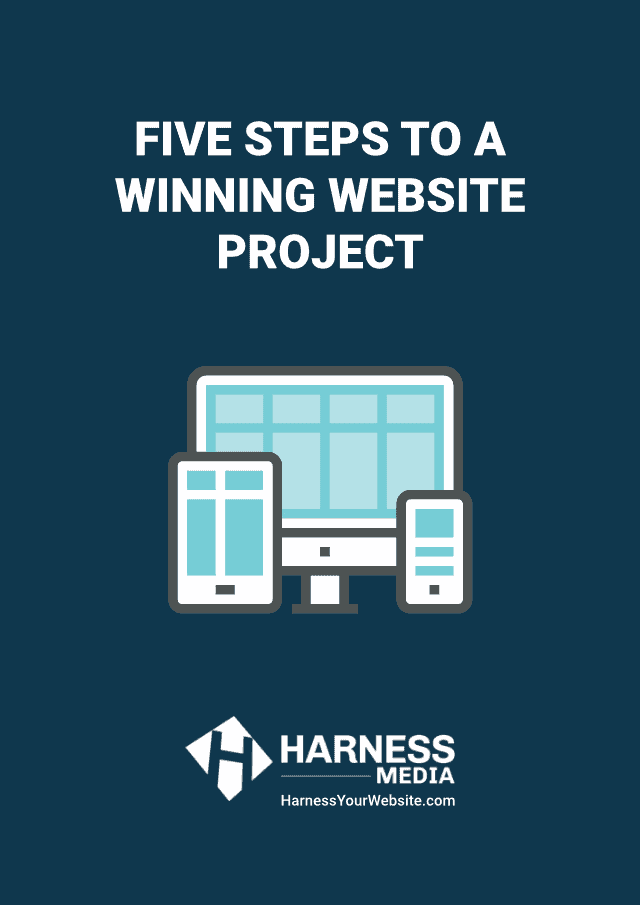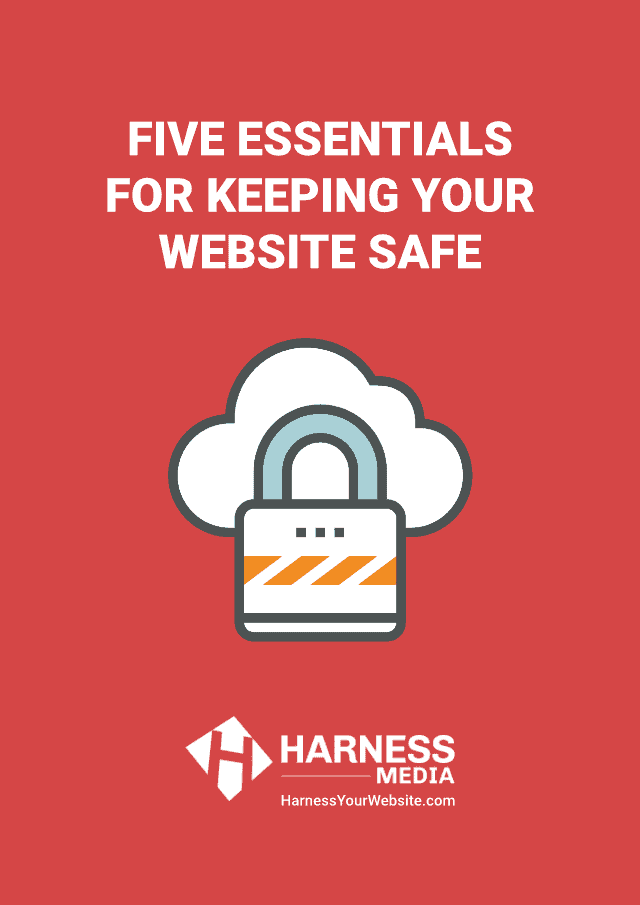In the digital age, securing your website is akin to locking your front door at night. It’s essential for protecting your online presence, your business, and, most importantly, your users’ trust. Now, let’s dive into the top 8 essentials for keeping your website as safe as a fortress.
Hosting
Choosing the right web hosting service is like picking a safe neighborhood for your online home. Just as a good neighborhood provides a secure environment with patrols and community watch programs, a reputable web hosting provider offers layers of security to protect your website from online threats. These include monitoring for suspicious activity, malware scanning and removal, employing firewalls, including DDoS protection, offering support for SSL certificates, and performing regular backups. Think of your hosting provider as a partner in your website’s security — selecting one that prioritizes safety means your site is more resilient against attacks and downtime.
With Harness Media, you can rest assured that we only use top-tier, secure web hosting services, ensuring that your website is not just beautiful and functional, but also well-protected against digital threats.
Updates
Imagine your website as a high-tech fortress. Just as a fortress needs regular maintenance to ensure its walls and defenses are strong against invaders, your website requires updates to stay secure. These updates fix any weak spots that hackers could use to sneak in, similar to repairing a crack in the fortress wall. Staying on top of these updates is crucial because it keeps your defenses up-to-date and ready to protect against the latest threats. Think of it as constantly improving the lock on your door in a world where burglars keep getting better at picking locks. Regular updates make sure your website remains a safe and secure place for your visitors.
SSL certificate
Ever noticed a padlock icon in the address bar of a website? That’s the sign of an SSL certificate at work. SSL stands for Secure Sockets Layer, and it’s like a secret handshake between a user’s browser and your website, ensuring all data transferred is encrypted and secure. It’s crucial for protecting sensitive information and also boosts your site’s credibility in the eyes of both users and search engines.
Passwords
A strong password is the first line of defense against unauthorized access. Using “password” as your password is like using a sticky note for a door lock—not very effective. A strong password combines letters, numbers, and symbols in unexpected ways, making it hard for hackers to guess. Consider using a phrase or a string of unrelated words as a base. Password managers can help generate and store these complex passwords, so you don’t have to memorize them all.
Two-Factor Authentication (2FA)
What if there was a way to add an extra layer of security? That’s where Two-Factor Authentication (2FA) comes in. It’s like having a secret knock after the handshake. Even if someone did figure out your handshake, they’d still need to know the knock to get in. With 2FA, after you enter your password, you’ll use something else to prove it’s really you — like a code sent to your phone. It’s a simple step for you, but a huge leap in keeping your website’s door locked tight against intruders.
Access
Limiting access to your website’s back-end is crucial. Think of it as giving a house key only to those you trust. Not everyone needs full access. For example, a content writer might only need access to the blog section, not the entire site. By setting roles and permissions, you minimize risks by ensuring people can only access areas relevant to their tasks.
Content Security Policy (CSP)
Have you ever made a list of friends allowed into your clubhouse? A Content Security Policy (CSP) is sort of like that list but for your website. It tells your website which internet buddies (like scripts, images, and styles) are allowed in and keeps the strangers out. By making a safe list and sticking to it, you help protect your site from bad guys trying to sneak in harmful stuff. It’s like drawing a magic circle around your website that only lets in the good magic. With CSP, you’re the one in charge of who gets past the clubhouse door, making your website a safer place for everyone.
Backups
Imagine spending hours on a school project only to have your computer crash. Without a backup, all that hard work vanishes. Similarly, backing up your website ensures that, in the event of a disaster, you can restore it to its former glory without missing a beat. A backup is essentially a copy of your website’s files and database stored safely away. Regular backups mean you’re always prepared, whether facing a cyberattack or a simple technical glitch.
Summary
Securing your website doesn’t have to be a daunting task. By focusing on these eight essentials, you’re taking significant steps toward creating a safer online environment for you and your users. Remember, in the world of website security, prevention is always better than cure.
At Harness Media, we treat your website’s security as if it were our own. Our team is committed to building not just beautiful and functional websites, but also ensuring they’re fortified against digital threats. We incorporate all the security essentials — from regular backups and SSL certificates to robust password policies and timely updates. Plus, we’re experts at customizing access permissions to suit your team’s needs, ensuring that your site is both safe and accessible to those who need it. You’re not just getting a website; you’re getting peace of mind knowing that your online presence is secure, reliable, and ready to grow with your business.




